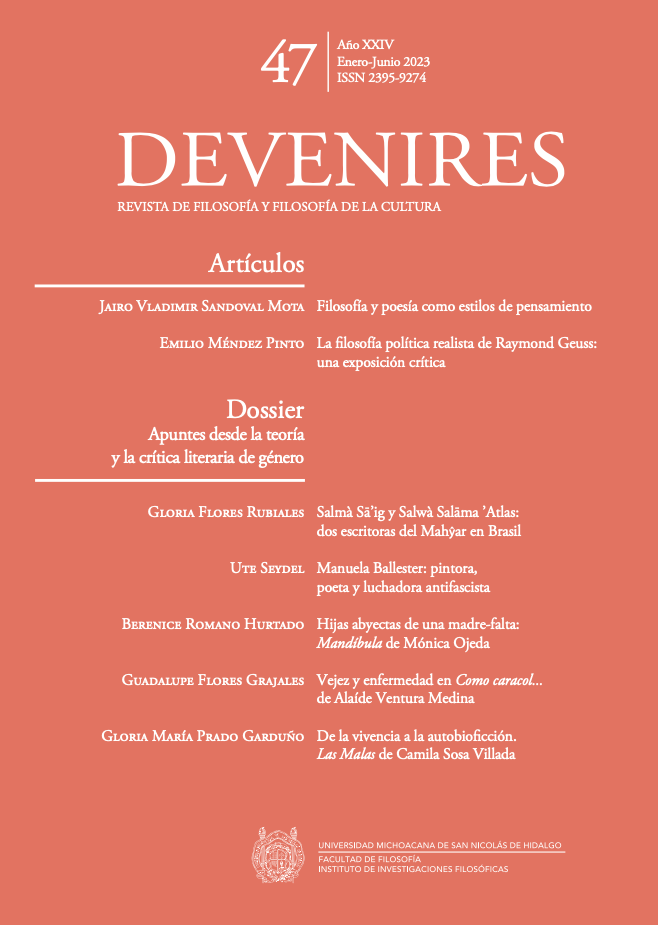Old age and illness in Alaíde Ventura Medina’s Como caracol...
Keywords:
Alzheimer's, autonomy, self-identity, coexistence, affectAbstract
In her debut novel, Como caracol... –winner of the prize Gran Angular 2018–, Alaíde Ventura Medina (Xalapa, 1985) explores the reunion of a girl with her maternal grandmother, who is transitioning into Alzheimer’s disease. Through the narration of the onset of the illness the author links the past with the affective, bodily, and symbolic present. The grandmother’s memory loss translates into a loss of self-esteem and self-identity, and into a deterioration of the physical and emotional wellbeing of the family. Nevertheless, self-pity and social discredit are replaced by the grandmother’s dignified proposal in the face of old age, illness, and death. Dependance on others and physical deterioration turn into the fear of losing autonomy and renders the individual fragile and a vulnerable both socially and psychologically. Yet Alzheimer’s also forces a reevaluation of family history: secrets are revealed, absences and resentments are explained. Thus, the illness brings about a new form of coexistence called “of affect” (Pons and Guerrero, 2018), to face old age, illness, and physical and emotional wear.
Downloads
Published
Versions
- 2023-01-16 (2)
- 2023-01-15 (1)
How to Cite
Issue
Section
License
Copyright (c) 2023 UMSNH

This work is licensed under a Creative Commons Attribution-NonCommercial-NoDerivatives 4.0 International License.


 Devenires, Año XXVI, Núm. 52, Julio-Diciembre 2025 es una publicación semestral editada por la Universidad Michoacana de San Nicolás de Hidalgo (Santiago Tapia 403, Centro Histórico, Morelia, Michoacán, México, C.P. 58000, Tel. (+52) 44-3322-3500), a través de la Facultad de Filosofía y el Instituto de Investigaciones Filosóficas (Ciudad Universitaria, Edificio C-4, Morelia, Michoacán, México, C.P. 58030, Tel (+52) 44-3322-3500 ext. 4148). Editor responsable: Dr. Federico Marulanda Rey (
Devenires, Año XXVI, Núm. 52, Julio-Diciembre 2025 es una publicación semestral editada por la Universidad Michoacana de San Nicolás de Hidalgo (Santiago Tapia 403, Centro Histórico, Morelia, Michoacán, México, C.P. 58000, Tel. (+52) 44-3322-3500), a través de la Facultad de Filosofía y el Instituto de Investigaciones Filosóficas (Ciudad Universitaria, Edificio C-4, Morelia, Michoacán, México, C.P. 58030, Tel (+52) 44-3322-3500 ext. 4148). Editor responsable: Dr. Federico Marulanda Rey (
